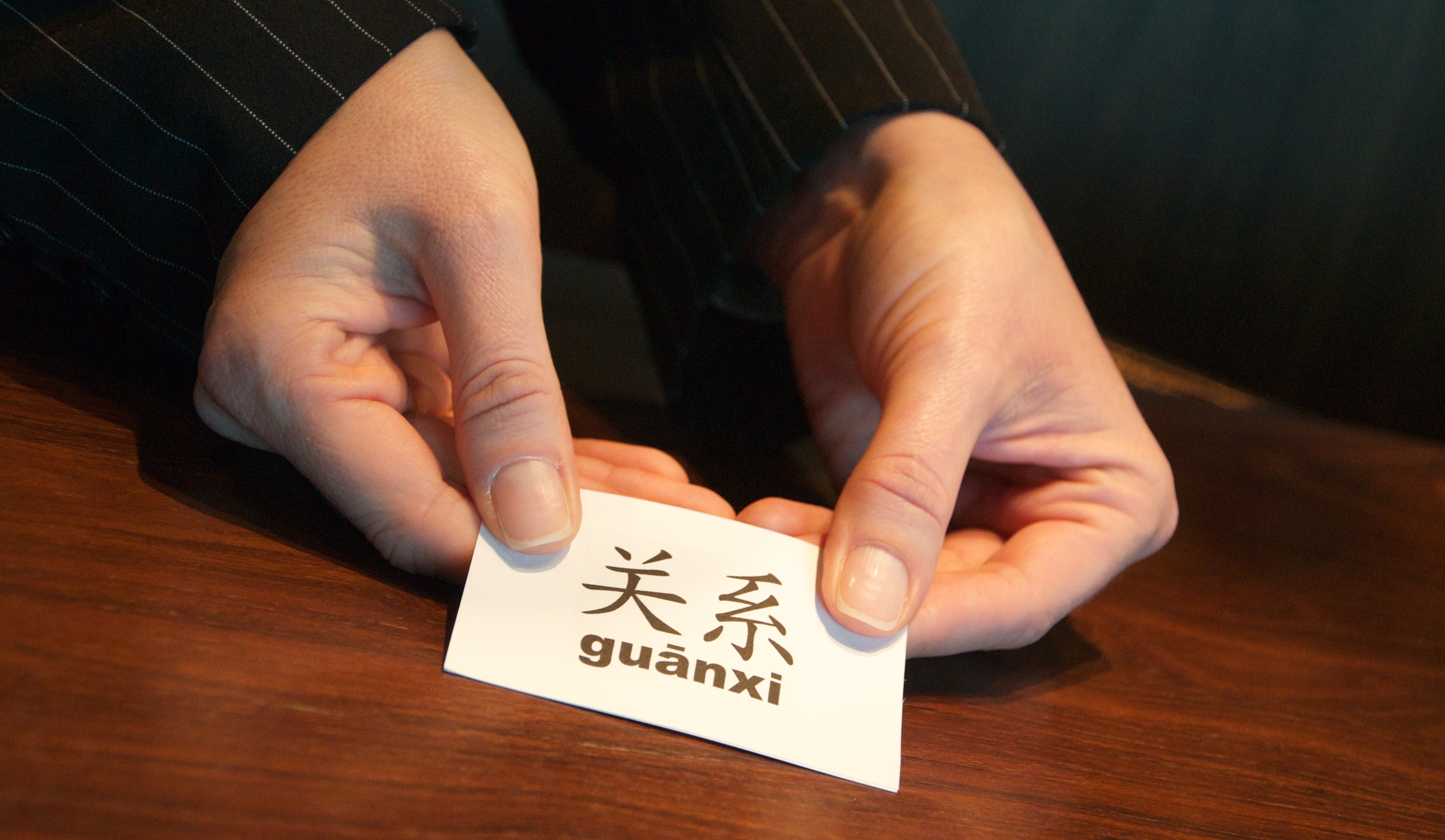Guanxi

Guanxi
Grizzled foreign business veterans insist you need it, Chinese entrepreneurs boast they have it, and deal makers claim they can help you get it. In China guanxi makes the world go round: securing a business license, landing a distribution deal or even finding that coveted office space. Fortunes have been made and lost based on good or bad guanxi. In countless cases a positive outcome has been the result of befriending the right gatekeepers, relationships often built over long banquets and many bottles of expensive brandy.
Guanxi famously goes back thousands of years and is based on traditional values of loyalty, accountability, and obligation. The notion that if somebody does you a favor, you will be expected to repay it one day. When Mainlanders use the phrase among themselves, they are referring to a fluid network of cordial business obligations and debts. An interpersonal safety shield against the uncertainties of society at large. An institutionalized version of “you scratch my back, I’ll scratch yours.” But increasingly many expatriate players feel the potential pay-off is not worth the endless schmoozing and back scratching. Inter-cultural socializing at a golf game or wine tasting goes only so far when trying to build relationships of any lasting value. A growing community of experienced, knowledgeable international experts even maintain that guanxi is increasingly ineffective, expensive and ultimately counter-productive in modern China.
Until the mid 2000’s China’s commercial laws were still in the middle of it’s development. In that environment guanxi surely helped to ensure that bureaucratic decisions were favorable. No one disputed then the need for guanxi. The only issue was locating and subsequently building a relationship with someone who really had the connections to facilitate basic business transactions. In the last ten years however, China’s central government has been busily constructing a stronger legal system and a relatively transparent regulatory framework. In that more modern context is increasingly frowned upon.
That is why foreign businessmen in China often find themselves now caught between two opposing views on the guanxi issue. Locals steeped in the tradition still maintain it is the only way to get things done in China. Many others however believe that guanxi is an ultimately useless throwback to the old days when personal influence trumped laws and regulations.
So what is the reality? Is guanxi a mighty force that all business-people in China need, or is it a bridge to nowhere? As an information network guanxi is indeed extremely useful and powerful. An active web of plugged-in connections can alert you to people who are willing and able to help. Also, good contacts inside the government systems often still help to soften the impact of laws. Interpersonal connections still count.
As a magic wand though it is increasingly useless. Yes, guanxi can open doors, but it can -and will – bring many problems: -A chain is as strong as it’s weakest link. Any member of your guanxi network may be transferred, suffer under conflicts of interest or may otherwise be unable or unwilling to help you out – wasting precious time and money.
- When all you have is a hammer, all problems look like nails. You may end up rewriting your business plan because your guanxi connection leads you to a single type of resource or decision maker.
- Your guanxi network may easily lead to ultimate disaster. Westerners who encounter problems in China are rarely suffering losses at the hands of complete strangers. The people bleeding you dry are the very same ones who lured you in with promises of powerful connections and influential friends.
So guanxi can play a role in your Chinese negotiating, but you will have to decide what that role will be. Guanxi networks are great as information and networking resources. However, if you solely plan on using connections to explore the full business potentials of the Chinese market, then you certainly will encounter major difficulties. In the end any guanxi will prove to be extremely high maintenance, and if you think you can keep up your good Chinese relations with the occasional email or telephone call you will eventually learn you are the weakest link!
Anne Meydam & Peter Pronk
Related posts

